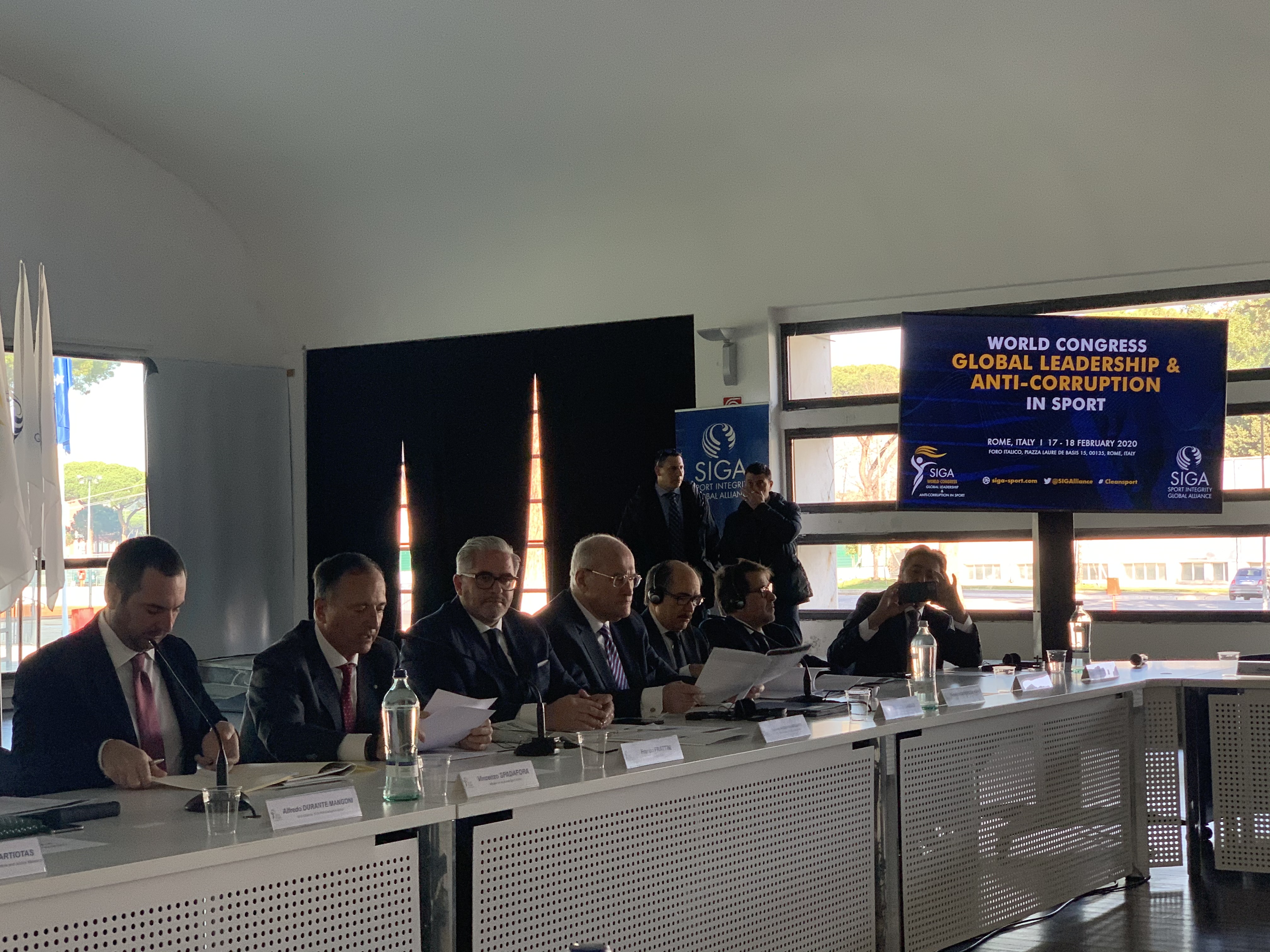By Paul Nicholson in Rome
February 18 – Money confiscated from the prosecution of sport crime should be returned to sport, says Franco Frattini, Justice and Chamber President to the Italian Supreme Administrative Court and the leading judge tackling mafia and organised crime in Italy.
Frattini, who also chairs SIGA (Sports Integrity Global Alliance) was speaking at the SIGA World Congress on Global Leadership an Anti-corruption in Sport, in Rome.
“A new world order where any money confiscated is reinvested in sports. Money earned illegally should be reversed for the use of good honest people,” said Frattini.
Outlining the growth of organised crime in sport, Frattini said: “Global leadership is badly needed in preventing any form of illegality in the world of sports. There is a moral and institutional obligation for states and governing bodies.
“Organised crime is searching for opportunities in more areas – corruption, tax crime, document forgery, influencing public administration, infiltration through various often converging instruments,” he continued. “The way to eradicate corruption is to address and cut financial awards of crime.”
The danger of organised crime in sport becoming the accepted norm was highlighted – much as the way ‘sportwashing’ has become accepted as an uncomfortable but often lucrative funding source.
“Promotion of cultural acceptance of corruption sports is a new risk area. Organised crime is very attracted to the money, first in the football sector. It also offers the opportunity of cleaning money and reputation by creating programmes in an area they want to control,” said Frattini.
Italian minister for youth and sport Vincenzo Spadafora said that his country is not just abiding by the international conventions but wants to “translate those conventions into actions”. The Italian leadership of G20 has put sport integrity on to the agenda, one that he hopes will accelerate the understanding and action required to combat corruption in sport.
“Tackling the structure of corruption is something this Italian government and Italian sport wants to do. It is a vision not just for today or for this government but is forward looking for the next generations. We see it as important for the social and cultural growth of our country,” said Spadafora.
The importance of protecting sport from criminal organisations was identified as a major issue not just for the integrity of the sport but also for the reputation of a country.
Federico Cafiero De Raho, Italy’s national prosecutor of anti-mafia and counter terrorism, said: “Sport is a source of fundamental values for the growth of a country. Sport brings a set of values that people have to comply with. But the social phenomenon is changing on the field where money becomes interested. Criminal activity is using what should be developed as part of our society.”
Taking the money collected from organised crime prosecution and ploughing it back into sport for, as Frattini says, “the use of good and honest people” would not just be a significant start but also a significant statement. It is a proposal that SIGA made four years ago in its early days but one that might have fallen on deaf ears back then but which makes real sense today.
David Chikvaidze, Chef de Cabinet of the director-general, United Nations Office at Geneva, said: “By fighting for sports (integrity) we are fighting for peace, human rights and sustainable development.”
Contact the writer of this story at moc.l1713882257labto1713882257ofdlr1713882257owedi1713882257sni@n1713882257osloh1713882257cin.l1713882257uap1713882257

